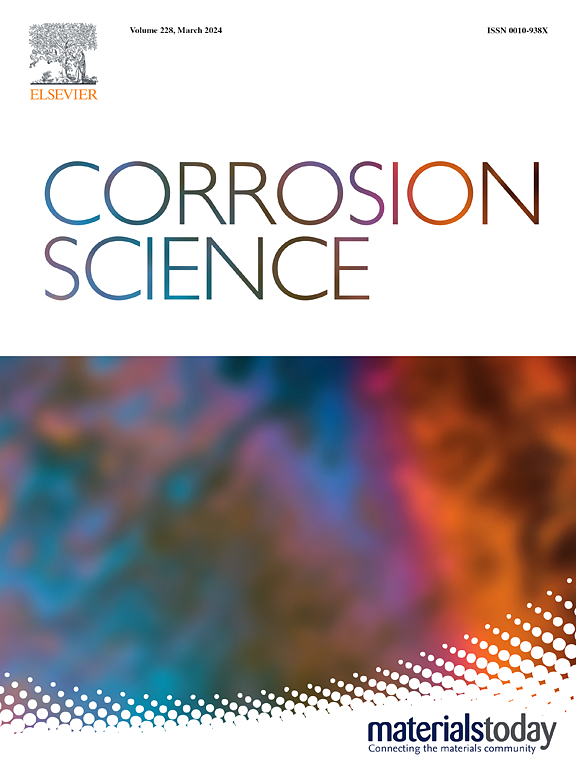通过密度泛函理论计算深入了解 (NiCrCo)82Ti9Al9 高熵合金镀层的纳米结构和电化学特性的原子尺度特性
IF 7.4
1区 材料科学
Q1 MATERIALS SCIENCE, MULTIDISCIPLINARY
引用次数: 0
摘要
(NiCrCo)82Ti9Al9 高熵合金通过激光熔覆和激光重熔相结合的方法作为涂层材料。本研究利用电化学工作站对所获得的 HEA 涂层的电化学性能进行了比较研究,并通过密度泛函理论计算揭示了其腐蚀机理。结果表明,激光熔覆的 HEA 涂层主要由面心立方结构和体心立方结构组成,激光熔覆的 HEA 涂层的面心立方结构通过激光重熔转移到了非晶态结构,与面心立方结构的 HEA 涂层相比,非晶态结构的 HEA 涂层具有更强的抗腐蚀能力。本文章由计算机程序翻译,如有差异,请以英文原文为准。
Atomic-scale insight on nanostructures and electrochemical properties of (NiCrCo)82Ti9Al9 high-entropy alloy coatings by density functional theory calculations
(NiCrCo)82Ti9Al9 high−entropy alloy was attached to act as coating material by combining of laser cladding and laser remelting. In this study, the electrochemical properties of obtained HEA coatings were comparatively investigated using an electrochemical workstation, and the corrosion mechanism was revealed by the density functional theory calculations. The results show that the laser cladded HEA coating is mainly consisted of face-centered and body-centered cubic structures, and the face-centered cubic structure of the laser cladded HEA coating is transferred to the amorphous structure by laser remelting, which provides the stronger anti−corrosion capability compared with the face-centered cubic structure of HEA coating.
求助全文
通过发布文献求助,成功后即可免费获取论文全文。
去求助
来源期刊

Corrosion Science
工程技术-材料科学:综合
CiteScore
13.60
自引率
18.10%
发文量
763
审稿时长
46 days
期刊介绍:
Corrosion occurrence and its practical control encompass a vast array of scientific knowledge. Corrosion Science endeavors to serve as the conduit for the exchange of ideas, developments, and research across all facets of this field, encompassing both metallic and non-metallic corrosion. The scope of this international journal is broad and inclusive. Published papers span from highly theoretical inquiries to essentially practical applications, covering diverse areas such as high-temperature oxidation, passivity, anodic oxidation, biochemical corrosion, stress corrosion cracking, and corrosion control mechanisms and methodologies.
This journal publishes original papers and critical reviews across the spectrum of pure and applied corrosion, material degradation, and surface science and engineering. It serves as a crucial link connecting metallurgists, materials scientists, and researchers investigating corrosion and degradation phenomena. Join us in advancing knowledge and understanding in the vital field of corrosion science.
 求助内容:
求助内容: 应助结果提醒方式:
应助结果提醒方式:


